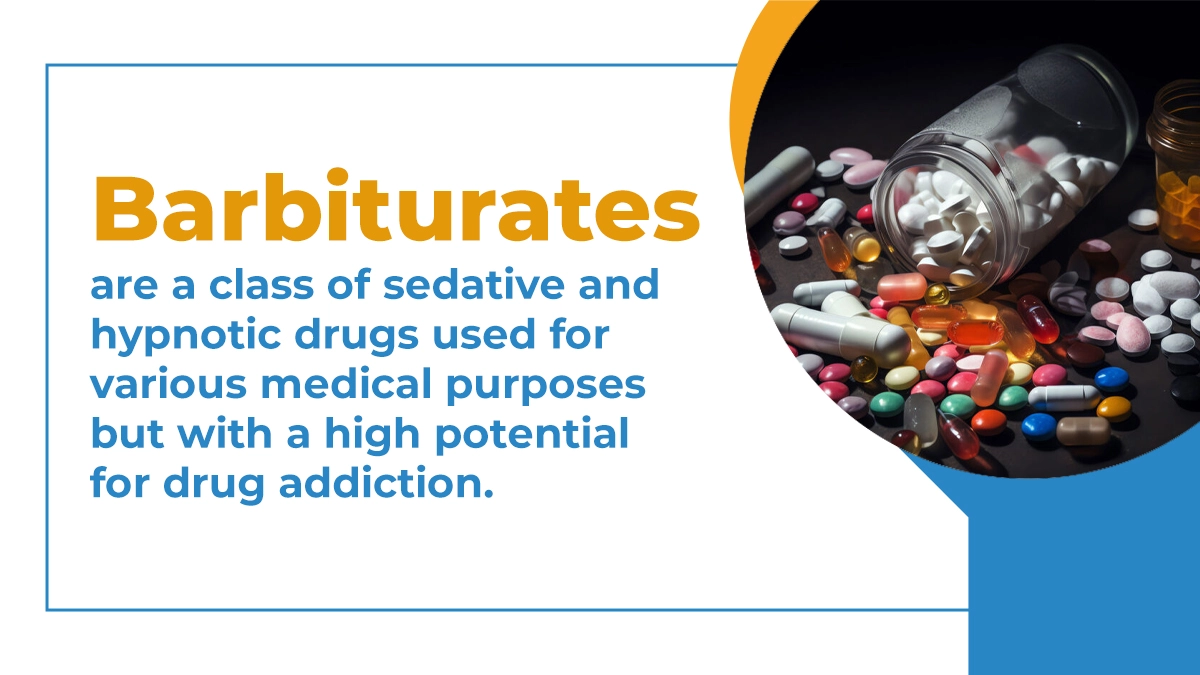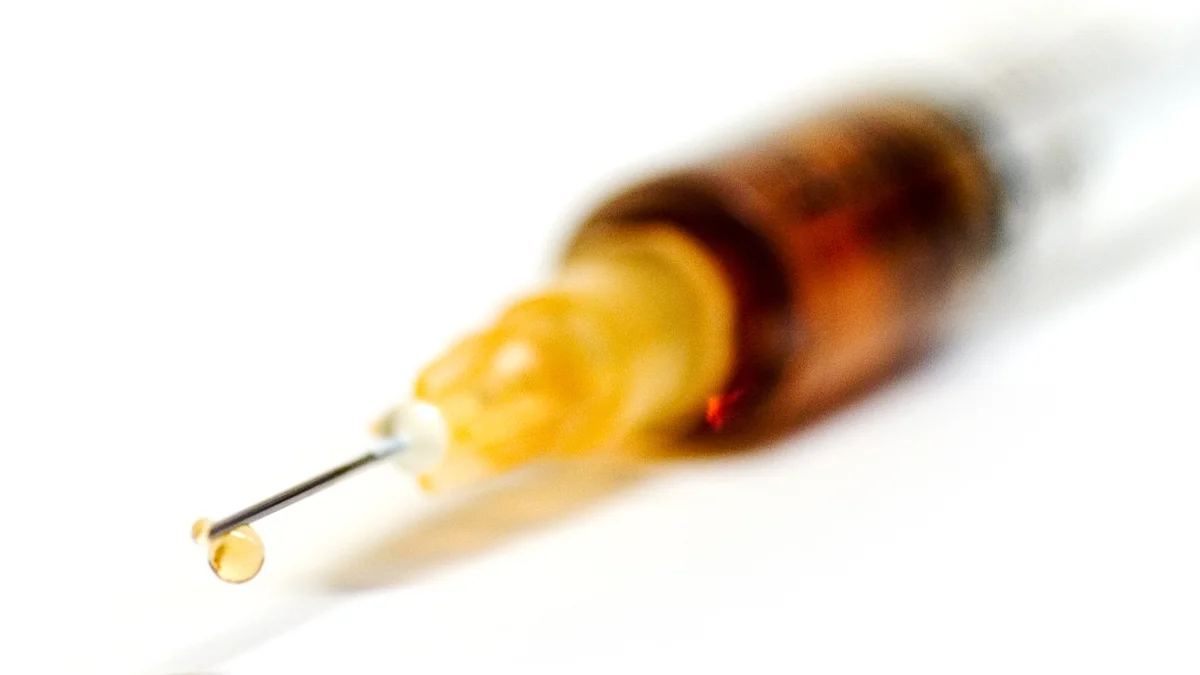
Lyrica With Suboxone: Risks And Safe Practices
The Recovery Team-Newton explores whether taking Lyrica with Suboxone is safe. Explore potential risks and guidelines

Barbiturates are a class of drugs that act as central nervous system depressants, once commonly prescribed to treat various conditions such as anxiety, insomnia, and seizures. They slow the brain’s activity, resulting in a sedative effect.
However, they also carry a high potential for addiction. Continued use of barbiturates can lead to tolerance, where an individual needs higher doses to achieve the desired effect and experiences withdrawal symptoms when trying to quit.
This article will examine barbiturate addiction, exploring its signs and symptoms, causes, and risk factors. In addition, we’ll also discuss effective treatment options for those struggling with barbiturate dependence, offering hope for recovery.
The Recovery Team-Newton provides a range of services to effectively treat barbiturate abuse issues, ensuring patients receive the support they need to overcome this challenging condition.
Our team of experienced addiction specialists and doctors offers outpatient services, medication-assisted treatment (MAT), and dual diagnosis treatment, all tailored to the individual’s specific needs.
The journey to recovery typically begins with a thorough assessment, where our experts evaluate the patient’s needs and situation. This assessment helps us determine the most suitable treatment approach for their addiction.
If you or a loved one is struggling with barbiturate use disorder, The Recovery Team-Newton is here to provide the support and care you need on your path to recovery.
Personalized treatment helps patients achieve and maintain sobriety. The goal is to provide a holistic form of treatment that supports physical, emotional, and mental well-being throughout the recovery journey.
Barbiturates are habit-forming drugs that can lead to addiction when misused, but treatment options are available for recovery. Here is what this article covers:
Contact The Recovery Team-Newton at (508) 978-2772 to begin a tailored, supportive journey toward a life free from substance use disorder (SUD).
Barbiturate addiction can be a severe and life-threatening problem. Understanding the symptoms of addiction is essential for identifying and addressing the issue. Common symptoms of barbiturate addiction include:
Timely treatment is essential to address barbiturate addiction effectively. Indications that you or a loved one should seek treatment as soon as possible include:
Neglecting Self-Care: Ignoring personal hygiene, nutrition, and well-being.
Strained Relationships: Frequent conflicts with family members and friends.
Health Issues: Suffering from physical or mental health problems due to drug use.
Decline in Work or School Performance: Deterioration in job or academic performance.
Unsafe Use: Engaging in risky behaviors while under the influence.
Failed Attempts to Quit: Repeatedly trying to quit without success.
Legal Consequences: Facing legal trouble related to drug use.
Loss of Control: Inability to limit or stop barbiturate use.
Isolation: Isolating oneself from support systems.
Supporting a loved one with barbiturate addiction is challenging but vital. To help your loved one get treatment:
Express Concern: Talk openly about your worries and the impact of their barbiturate use on your relationship.
Encourage Professional Help: Suggest seeking treatment from a medical or addiction specialist.
Provide Emotional Support: Let them know you’re there for them during recovery.
Offer Information: Share resources and information about treatment options.
Intervention: Consider a formal intervention with the help of a professional.
Avoid Enabling: Refrain from providing money or facilitating drug use.
Show Empathy: Be understanding and empathetic to their struggles.
Remember that addiction is a complex issue, and professional help is often the most effective way to address it.
Barbiturate addiction can develop due to a combination of factors, and understanding these causes is vital in addressing the issue effectively.
One common cause of barbiturate addiction is the misuse of prescription medications. When individuals take these drugs in high doses or for longer durations than prescribed, it can lead to dependency.
Some people turn to barbiturates as a form of self-medication for underlying emotional or psychological issues. They may use these drugs to alleviate anxiety, stress, or sleep problems, unknowingly spiraling into addiction.
Psychological factors, such as a history of trauma, depression, or low self-esteem, can contribute to barbiturate addiction. Individuals may use these drugs to cope with emotional pain or mental health issues.
The environment in which a person lives can also influence addiction. Easy access to barbiturates, peer pressure, or a culture that normalizes drug use can all contribute to the development of addiction.
By addressing the root causes of barbiturate addiction, individuals and their loved ones can work towards recovery and a healthier, drug-free life.
Barbiturate addiction is influenced by several risk factors that increase the likelihood of individuals developing a dependency on these substances.
Individuals with a history of substance abuse, especially involving other drugs or alcohol, are at a higher risk of developing barbiturate addiction. Prior addiction experiences can make it easier to transition to new substances.
People with mental health disorders such as depression, anxiety, or post-traumatic stress disorder may be more prone to using barbiturates to self-medicate their symptoms. This can lead to physical dependence on these drugs.
Having easy access to barbiturates, either through legal prescriptions or illicit sources, increases the likelihood of misuse and addiction. Availability plays a significant role in the initial use of these drugs.
Individuals who lack healthy coping mechanisms for managing stress, trauma, or life challenges may turn to barbiturates as a way to escape or numb their emotions. This can lead to reliance on the substance.
A lack of a supportive social network or a stable family environment can make individuals more vulnerable to addiction. Supportive relationships and a strong support system are essential for preventing and addressing addiction.
Barbiturate addiction can have far-reaching consequences on an individual’s life, affecting them physically, psychologically, and socially.
Barbiturate addiction can take a toll on the body, leading to symptoms such as drowsiness, slurred speech, poor coordination, lowered heart rate and blood pressure, clammy skin, migraine headaches, muscle weakness, and even life-threatening issues like respiratory depression. Over time, with regular use, the body may become tolerant, requiring higher doses to achieve the same effects, which can increase the risk of barbiturate overdose.
The psychological impact of barbiturate addiction is profound. Individuals may experience mood swings, irritability, tension, memory problems, and impaired judgment. The drugs can also lead to emotional instability and increased risk of mental illnesses.
Addiction can strain relationships and affect an individual’s social life. Barbiturate-dependent individuals may withdraw from family and friends, neglect responsibilities, and engage in secretive and risky behaviors. Their priorities may shift, with the drug becoming the central focus of their life.
Recognizing these adverse effects is vital in addressing the addiction, seeking help, and promoting a path to recovery.
Several effective barbiturate addiction treatment options are available, tailored to the individual’s needs and the severity of their addiction.
The first step in treating barbiturate addiction is often medical detox. This supervised process allows the individual to safely withdraw from the drug while managing symptoms of barbiturate withdrawal, reducing discomfort, and ensuring their physical well-being.
For individuals with severe addiction or those needing a highly structured environment, inpatient or residential treatment is a valuable option. It provides 24/7 care and support in a secure setting.
Outpatient programs are more flexible, allowing individuals to receive treatment while maintaining their daily routines. These programs include counseling, therapy, and support groups, providing a balance between treatment and everyday life.
Medication-assisted treatment (MAT) combines medications approved by the United States Food and Drug Administration (FDA) with counseling and therapy to help individuals recover. It can be particularly beneficial in addressing severe withdrawal symptoms and cravings, increasing the chances of long-term success.
Many individuals with barbiturate addiction have co-occurring mental health conditions. Dual diagnosis treatment focuses on addressing both addiction and underlying mental health issues concurrently, offering a comprehensive approach to recovery.
Various forms of therapy, such as cognitive-behavioral therapy (CBT) and individual counseling, play a crucial role in addressing the psychological aspects of addiction. They help individuals develop healthier coping strategies and understand the root causes of their addiction.
After completing a formal treatment program, ongoing support is essential for maintaining recovery. This may involve participation in support groups, continued therapy, and access to resources that aid in preventing relapse.
By combining these treatment options, individuals can address the physical, psychological, and social aspects of barbiturate addiction, increasing the chances of a successful recovery and a healthier, drug-free life.
Recovery from barbiturate addiction is possible, and there’s hope for a brighter, addiction-free future. At The Recovery Team-Newton, we’re here to support your journey.
We understand that life doesn’t need to be put on hold during recovery, so we offer flexible outpatient services, including a partial hospitalization program (PHP) and an intensive outpatient program (IOP), to accommodate your needs.
Our medication-assisted treatment (MAT) takes a holistic approach, combining medicines with counseling to support your journey to sobriety. If you’re dealing with mental health issues alongside addiction, our dual diagnosis program is here to help.
Take that courageous step today and contact us at (508) 978-2772.
Barbiturates are a group of drugs that include phenobarbital, pentobarbital, secobarbital, and amobarbital, among others. These drugs are central nervous system depressants that were once used for sedation and treating sleep and seizure disorders.
No, diazepam is not a barbiturate. It’s one of the well-known benzodiazepines, often used to treat anxiety and sleep disorders, but it works differently from barbiturates.
Barbiturates and Xanax are different. Barbiturates are a class of sedatives, while Xanax is a benzodiazepine used to treat anxiety, but they have a similar calming effect on the brain.

The Recovery Team-Newton explores whether taking Lyrica with Suboxone is safe. Explore potential risks and guidelines

Learn about Suboxone injection side effects and explore recovery solutions in this guide by The Recovery Team-Newton.